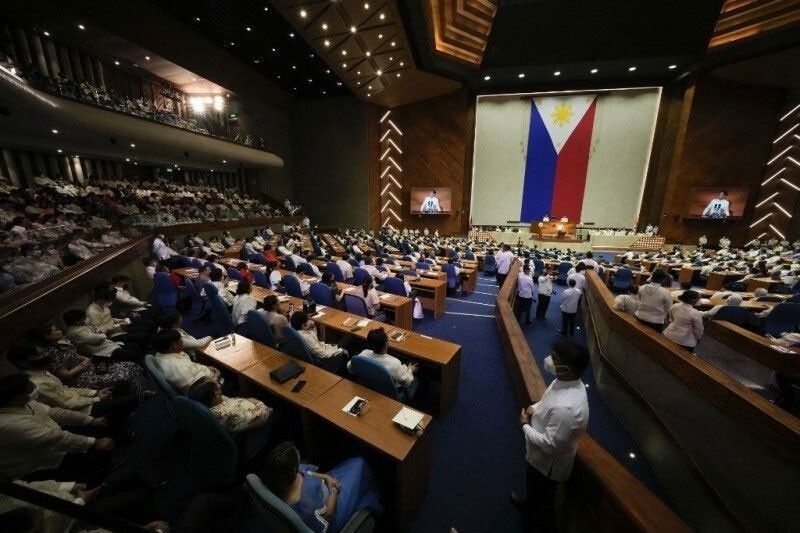Lagman flags 'reengineered' Maharlika bill over problems with fund sources

MANILA, Philippines — A lawmaker flagged the revised version of the Maharlika Investment Fund bill on Monday, saying that proposals to use dividends from government-owned and -controlled corporations for the wealth fund would strip the national treasury of an important fund source.
Independent minority solon Rep. Edcel Lagman (Albay 1st district) said in an interview on ANC’s Headstart that the reengineered version of the MIF bill would go against a 1993 law requiring GOCCs to turn over half of its earnings to the national government.
“Under the law, 50% of the income of GOCCs should be remitted to the national treasury. The other 50% should be turned back to the corporation for their operational expenses,” Lagman said. “Otherwise, there is no surplus.”
Arguing that the revised MIF would impact the availability of social services, Lagman pointed out: “We should recall the approval of the bill so that the House of Representatives can deliberate on this reengineered version. It was not discussed or deliberated in the House.”
This comes after Rep. Joey Salceda (Albay 2nd district) bared last week that he and three lawmakers revised the bill in December and wrote off the Bangko Sentral ng Pilipinas and the Development Bank of the Philippines as fund sources.
The revised bill essentially trimmed the MIF's fund sources down to just the securitization of around P44.33 billion in annual dividends from GOCCs, according to an interview with Salceda.
RELATED: After swiftly passing House, Maharlika fund gets quietly revamped
Due to the requirements of Republic Act 7656, remittances from GOCCs have been “used up to now to help fund the national budget and to help address directly people’s socio-economic needs, such as health, education, food security, employment, basic infrastructure," Lagman added.
GOCCs remitted P57.55 billion in cash dividends to the national treasury in 2021.
Privatizing MIF a mistake
Lagman added that proposals to list GOCCs as companies in the Philippine stock market in the revised MIF bill go against the nature of a state-owned wealth fund.
“That fund, which represents the wealth of the state, should be controlled and owned by the state. It should not be transferred to the private sector through an (Initial Public Offering). It should remain a government-owned and -controlled fund,” Lagman said.
An Initial Public Offering refers to the first time a company sells stocks to the public.
Lagman said that investors would be hesitant to dip into the MIF because “they would have to see first how the fund would be created, developed and managed.”
Comparing the MIF to Indonesia’s own sovereign wealth fund, Lagman said that the difference is that Indonesia bagged at least $10 billion dollar investments from global agencies and the United Arab Emirates to seed the fund.
“But in our case, there are no commitments yet from foreign investors because they have to see what’s going to happen,” Lagman added.
Depending on GOCC dividends alone to pump funding into MIF would also make it “the smallest wealth fund in the world,” the lawmaker said.
“In other words, we are not yet ready. We are facing economic constraints like a fiscal deficit and a negative balance of trade,” he added.
President Ferdinand Marcos Jr. touted the MIF, which has yet to be passed in Senate, at the World Economic Forum last week as a tool to attract investors that would reinvigorate the economy.
But Lagman said that any benefits to be reaped from the wealth fund remain projections as of now.
“What is happening now is that we will have to bail out our people from poverty, the 8.1% inflation rate and the possibility of a recession. So to use our funds for this purpose, we should provide our people with a shield to help them survive in order to enjoy the contingent benefits of the fund,” Lagman added.
- Latest
- Trending






























